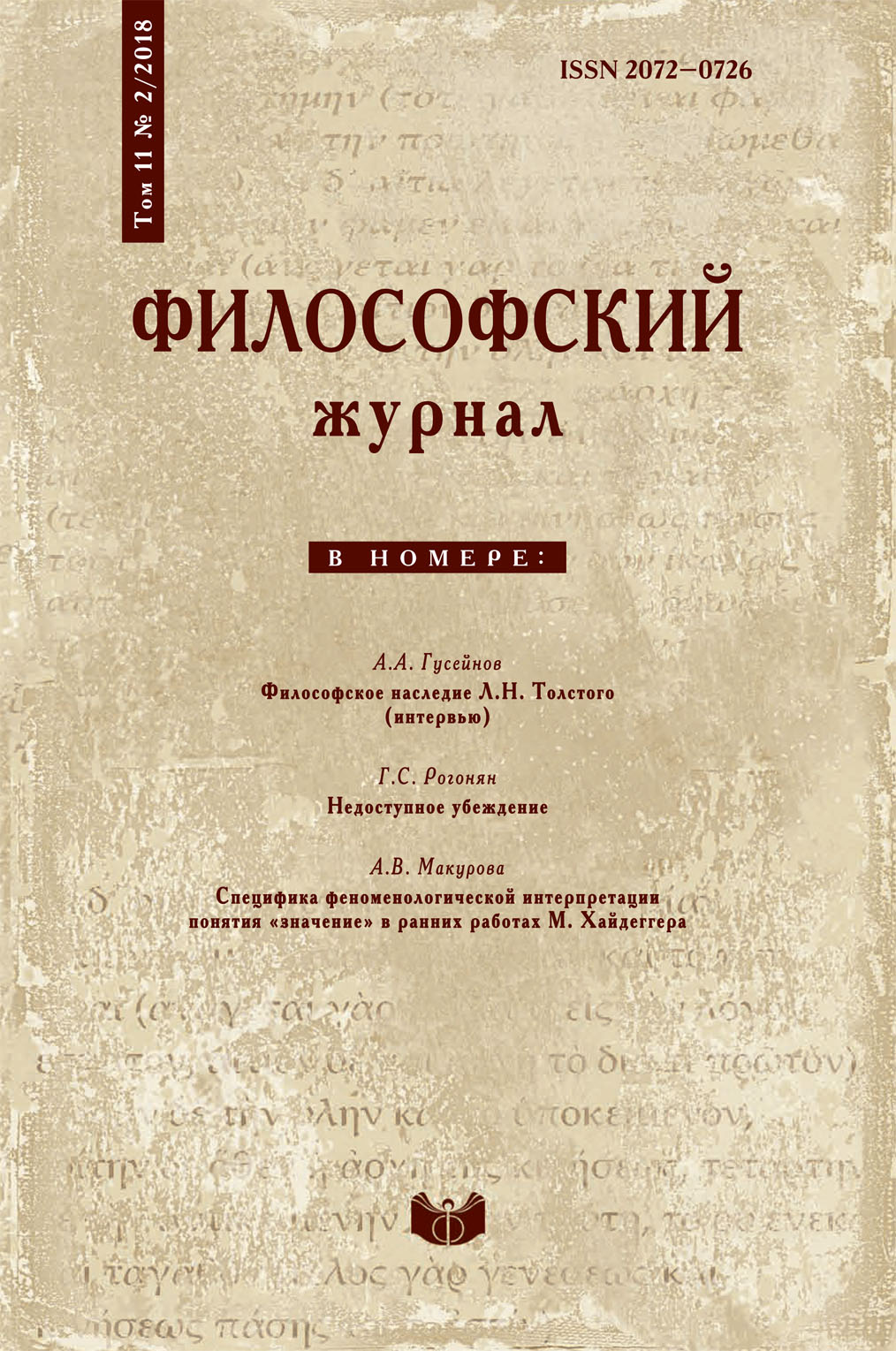The inaccessible belief
DOI:
https://doi.org/10.21146/2072-0726-2018-11-2-22-39Keywords:
epistemology, semantics, mental states, radical externalism, first person authority, distal and proximal causes, intersubjective triangulationAbstract
This paper examines the arguments put forward by Donald Davidson in defense of first person authority, the very possibility of which is being questioned different variants of modern anti-individualism. In particular, radical versions of externalism in the philosophy of language, philosophy of mind and epistemology either ignore the problem of justifying direct knowledge of our mental states and the meanings of our words, or give unsatisfactory explanations for this phenomenon. In relation to such kind of knowledge, Davidson proposes a moderate version of externalism. In his famous article on that question he argues that one can reconcile the externalist approach to knowledge and meaning with the idea of irreducibility of mental states and first-person perspective to the vocabulary of natural sciences. The main point of his method is to consider causal factors that determine the meanings of words and mental states primarily from the perspective of а publicly accessible intersubjective world. In this case, not only anonymous determinants of social and perceptual orders are taken into account, but also the individual's own activity and his / her relationships with the immediate environment. As a result, such moderate externalist approach to first-person authority can be shown to be reconcilable with the idea of non-reducibility of mental states and our direct knowledge of these states to the vocabulary of natural sciences. This notwithstanding, for many philosophers the advantages of Davidson's position still remain unobvious, to the extent that some of his arguments have never been properly assessed or even have been declared unpertaining to the problem they profess to solve. The aim of the present author is, therefore, to clarify and explain Davidson's reasoning, making due account of the difference between proximal and distal causes of our beliefs, and to consider the problem of our immediate knowledge about ourselves from the perspective of distal theory of reference.






